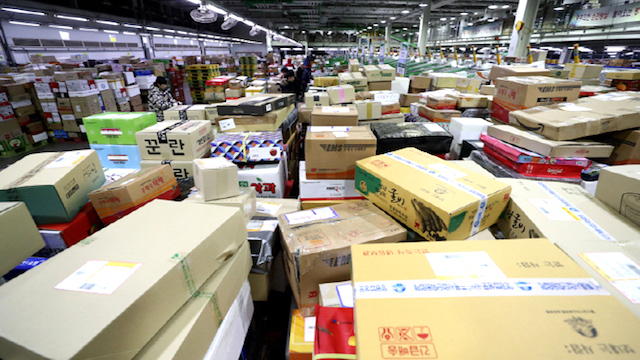South Korea’s e-commerce industry, which has long emphasised “fast delivery,” is expanding its services, with competition now turning to offering “easy returns”.
South Korea’s major shopping portal 11st said Monday that it has introduced a service to offset return costs caused by customers exchanging products, in which an insurance company pays for shipping when consumers return a product.
When customers wish to return products with return insurance with 11st designated delivery service, they will not have to pay the delivery charge.
However, if a customer returns a free-delivery item, the purchaser must pay for the initial shipping costs incurred by the seller.
11st introduced services to flagship product lines such as fashion and accessory goods, which are often difficult to purchase online due to the cost of return shipping resulting from colour and size exchanges.
Shipping costs not only contribute to consumer hesitation about making a purchase, but also make them hesitate as they might want to exchange a product for another size or colour.
However, with the delivery charges covered, one can shop worry-free.
According to a report released last year by market-research firm Consumer Insight and Hanyang University’s Retail Research Center, “exchange/return/refund convenience” topped the list with 35.1 per cent according to a survey of six aspects of delivery satisfaction.
Rapid/accuracy, with 16.4 per cent, was second.
The result can be interpreted that consumers consider being able to return goods more important than the speed at which they are originally delivered.
Coupang Corp, South Korea’s No 1 e-commerce company, is also offering free delivery and free return services to Rocket Wow members.
In the case of size-sensitive fashion products, the company offers exchanges free of charge for 30 days for rocket delivery products that are purchased directly even if the purchaser is not a member.
Prior to e-commerce channels, the home shopping industry focused on growth based on “free returns” as its sales strategy.
“On the part of consumers, fewer hassles or costs caused by returning products are eliminated, and on the part of sellers, more sales can be expected if more frequent purchases occur,” said a source in the retail industry.
- D M Park writes for Korea Bizwire.






